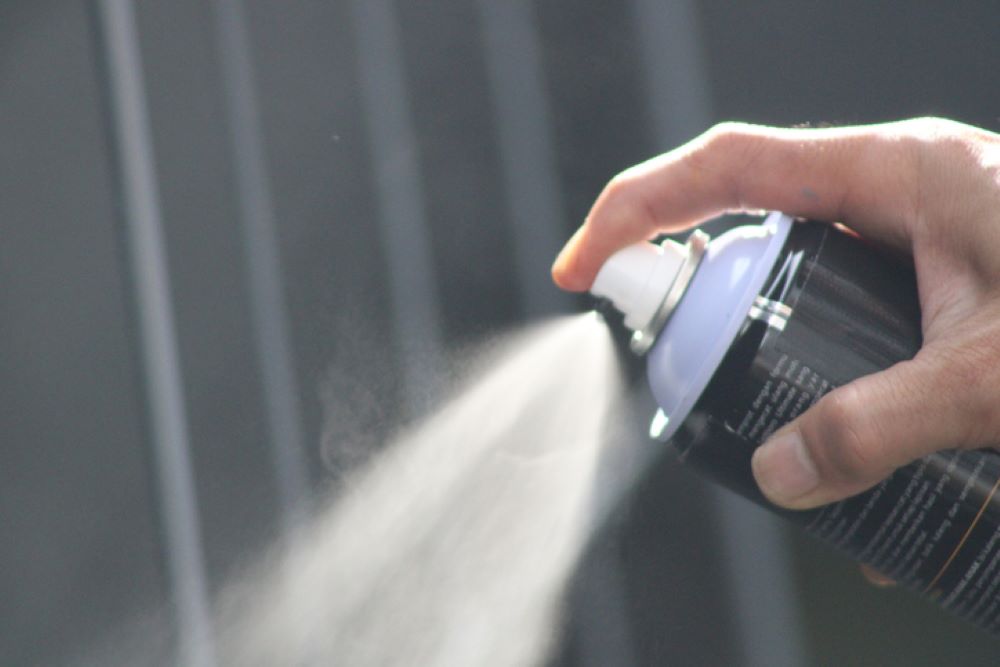
In recent years, a concerning trend has emerged surrounding the misuse of common household products, particularly aerosol duster cans. What may seem like harmless items used for cleaning electronics or hard-to-reach areas around the house have unfortunately become associated with a dangerous practice known as inhalant abuse or “huffing.” This alarming phenomenon has prompted legal action and raised questions about responsibility, accountability, and the pursuit of justice for those affected.
Understanding Inhalant Abuse and Its Effects
Before delving into the legal aspects of duster cans misuse, it’s crucial to comprehend the gravity of inhalant abuse. Inhalants are substances that produce chemical vapors that can be inhaled to induce mind-altering effects. While some individuals may turn to inhalants seeking a quick high, the consequences can be devastating.
Inhalant abuse can lead to a range of health issues, including but not limited to:
Brain Damage: The chemicals in inhalants can cause irreversible damage to the brain, impairing cognitive function and memory.
Organ Damage: Prolonged inhalant abuse can harm vital organs such as the heart, liver, kidneys, and lungs.
Physical Injury: Inhalant abusers are at a heightened risk of accidents and injuries due to impaired judgment and coordination.
Death: In severe cases, inhalant abuse can result in cardiac arrest or suffocation, leading to fatalities.
The Role of Duster Cans in Inhalant Abuse
One of the concerning aspects of inhalant abuse is the accessibility of the substances involved. Common household items like aerosol duster cans, intended for legitimate purposes such as cleaning electronics, have become readily available tools for those seeking to misuse them.
Duster cans contain compressed gas, typically a blend of difluoroethane (DFE) and other chemicals, designed to propel dust and debris from electronic devices. However, the same properties that make these products effective for cleaning also make them appealing to individuals looking to achieve a high.
The inhalation of duster spray vapors can lead to rapid intoxication and pose significant health risks. Despite efforts to deter misuse by adding bittering agents to discourage inhalant abuse, determined individuals may still bypass these safety measures in pursuit of a high.
Common Duster Cans Lawsuits
In recent years, the misuse of duster cans has led to a surge in legal actions against manufacturers, distributors, and retailers. These lawsuits typically revolve around allegations of product liability, negligence, wrongful death, and personal injury. By understanding the common types of duster cans lawsuits, individuals affected by inhalant abuse can seek justice and hold responsible parties accountable for the harm caused.
Product Liability Claims: These lawsuits focus on defects in duster cans’ design, manufacturing, or marketing, alleging they are unreasonably dangerous. Claims may include defective design, manufacturing defects, or failure to provide adequate warnings.
Negligence Claims: Plaintiffs assert that defendants were negligent in their actions or omissions regarding duster cans. Claims may include failure to warn consumers about the risks of inhalant abuse, inadequate marketing practices, or failure to implement safety measures.
Wrongful Death and Personal Injury Claims: Surviving family members or injured parties may pursue lawsuit claims seeking compensation for medical expenses, lost income, pain and suffering, and funeral expenses resulting from inhalant abuse involving duster cans.
Can I File a Duster Cans Lawsuit?
Yes, individuals who have been harmed or affected by duster cans misuse may have grounds to file a lawsuit seeking compensation for their damages. Whether you can file a duster cans lawsuit depends on various factors, including the circumstances of your case, the extent of your injuries or losses, and the laws governing product liability and personal injury in your jurisdiction. Consulting with an experienced attorney can help you assess your legal options and determine the best course of action.
When filing a lawsuit, you may name multiple defendants, including:
The manufacturer of the duster cans.
The distributor or retailer who sold the product.
Any other parties deemed responsible for contributing to the plaintiff’s injuries, such as property owners or caregivers.
First the company must have a duty to the consumer. Normally a duster manufacturer won’t have a duty to its customers unless there is a serious defect. However, if there is evidence that the company was aware of abuse of its products a duty might exist.
Are Stores Like Walmart Liable for Dust Spray Huffing?
Yes, stores like Walmart can potentially be held liable for dust spray huffing if they are found to have contributed to the harm through negligence. This may include allegations of inadequate security measures, failure to enforce age restrictions on sales, or negligent marketing practices. However, liability would depend on the specific circumstances of each case and whether the store’s actions or omissions directly contributed to the harm caused by dust spray huffing.
One instance for liability is if the company had a duty to warn. Particularly if the company failed to put a warning on the duster, or if the warning was insufficient. One issue with liable for a duster can case is the issue of comparative negligence. Many states have comparative negligence statutes that will bar the plaintiff’s claim, if the plaintiff’s own negligence is a certain amount. In Nevada, as long as the plaintiff’s negligence is not greater than the defendant’s than the claim is not barred.
Proving Negligence and Establishing Liability
To succeed in a duster cans lawsuit, plaintiffs must demonstrate that the defendants acted negligently, resulting in foreseeable harm. This may involve proving that:
The defendants knew or should have known about the risks associated with inhalant abuse of their products.
They failed to adequately warn consumers of these risks or implement effective deterrents.
Their actions or inactions directly contributed to the plaintiff’s injuries or losses.
Gathering evidence to support these claims is essential, which may include product labeling, industry regulations, expert testimony, and medical records documenting the plaintiff’s injuries.
Also, if the company is in violation of a state statute liability can be found.
How to File a Duster Cans Lawsuit
Filing a duster cans lawsuit involves several steps to ensure that your case is properly prepared and presented. Here’s a general overview of the process:
Consult with an Attorney: The first step is to seek legal guidance from an experienced attorney who specializes in product liability or personal injury cases. They can assess your situation, advise you on your legal rights, and guide you through the legal process.
Gather Evidence: Your attorney will help you gather evidence to support your case. This may include medical records documenting your injuries, receipts or proof of purchase for the duster cans, witness statements, and any other relevant documentation.
Determine Defendants: Your attorney will identify the parties you wish to sue, which may include the manufacturer of the duster cans, distributors, retailers, or other entities responsible for the sale or distribution of the product.
Draft Complaint: Your attorney will draft a legal document called a complaint, which outlines the details of your case, including the alleged wrongdoing by the defendants, the injuries or damages you have suffered, and the relief you are seeking from the court.
File Complaint: The complaint is then filed with the appropriate court, usually in the jurisdiction where the incident occurred or where the defendants are located. There may be filing fees associated with this step.
Serve Defendants: Once the complaint is filed, it must be served on the defendants, notifying them of the lawsuit and providing them with an opportunity to respond. This is typically done through a process server or certified mail.
Discovery Process: After the defendants have been served, the discovery process begins. This involves exchanging information and evidence with the defendants through methods such as written interrogatories, document requests, and depositions.
Negotiation or Trial: Depending on the circumstances of your case, there may be opportunities to negotiate a settlement with the defendants. If a settlement cannot be reached, the case may proceed to trial, where a judge or jury will hear arguments from both sides and render a verdict.
Resolution: If the court rules in your favor, you may be awarded damages to compensate you for your injuries or losses. If the defendants are found liable, they may be ordered to pay monetary compensation or take other corrective actions to remedy the harm caused.
Appeals (if applicable): If either party is dissatisfied with the court’s decision, they may have the right to appeal the verdict to a higher court.
Potential Damages in Duster Cans Lawsuits
The potential damages recoverable in a duster cans lawsuit can vary depending on the circumstances of the case and the extent of the plaintiff’s injuries. These damages may include:
Medical expenses for treatment related to inhalant abuse.
Lost income or earning capacity due to disability or wrongful death.
Pain and suffering endured by the plaintiff or their surviving family members.
Punitive damages intended to punish the defendants for their reckless conduct and deter future misconduct.
How an Attorney Can Help You in a Duster Cans Lawsuit
Dealing a duster cans lawsuit can be complex and challenging, but having an experienced attorney by your side can make a significant difference in the outcome of your case. Here are several ways in which an attorney can assist you:
Legal Guidance: Attorneys specializing in product liability and personal injury law provide tailored legal advice and navigate complex statutes and regulations.
Case Evaluation: Attorneys assess your case’s viability, outlining potential legal options based on its strengths and weaknesses.
Investigation: Attorneys conduct thorough investigations, gathering evidence and consulting experts to build a compelling case.
Legal Strategy: They develop strategic approaches, whether negotiation or litigation, to maximize success.
Court Representation: Attorneys represent you in district court, advocating your case before judges or juries.
Negotiation: They negotiate settlements, seeking fair compensation from defendants and insurers.
Litigation Representation: If a settlement cannot be reached, attorneys are prepared to advocate for your rights in court. They can draft legal documents, present evidence, cross-examine witnesses, and argue your case before a judge or jury to seek a favorable verdict.
Maximizing Compensation: They work tirelessly to secure maximum compensation for your losses, including medical expenses and pain and suffering.
Protecting Your Rights: Attorneys advocate fiercely, ensuring fair treatment and holding negligent parties accountable for your injuries.

Seek Justice for Victims of Duster Cans Huffing with BLG
Inhalant abuse linked to duster cans poses a serious public health crisis, with devastating consequences for individuals, families, and communities. By holding manufacturers, distributors, and retailers accountable for their actions, victims of inhalant abuse can seek justice and pursue compensation for the harm they’ve suffered.
If you or a loved one has been affected by duster cans huffing, don’t hesitate to explore your legal options. Contact BLG, our skilled attorney experienced in handling product liability and personal injury cases to discuss your situation and take the first steps towards seeking the justice and compensation you deserve. Together, we can work towards deterring inhalant abuse and ensuring the safety and well-being of all individuals.
Contact us today for a free consultation.




